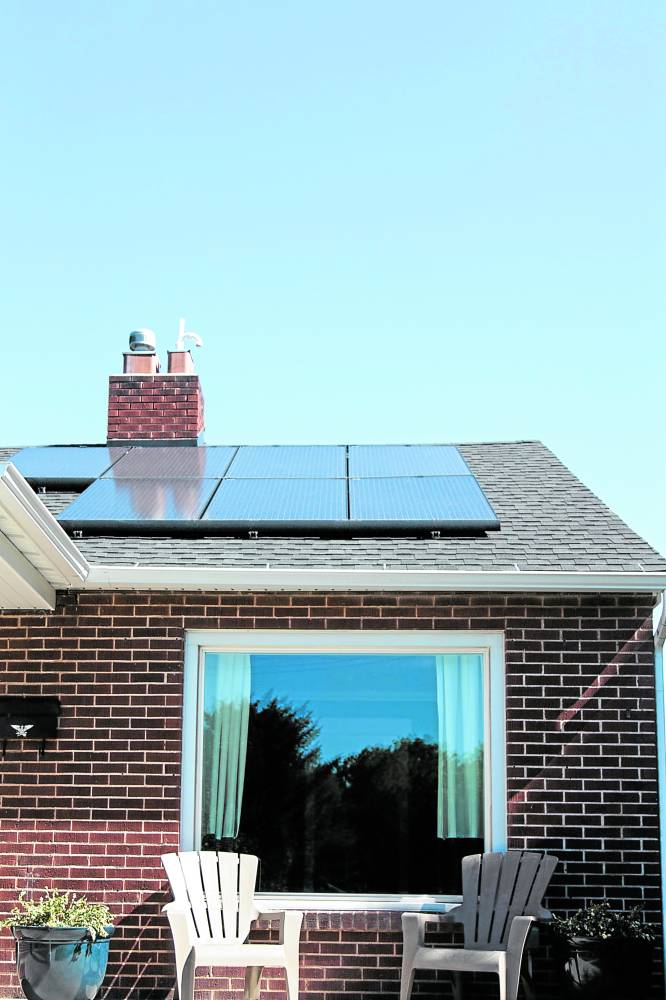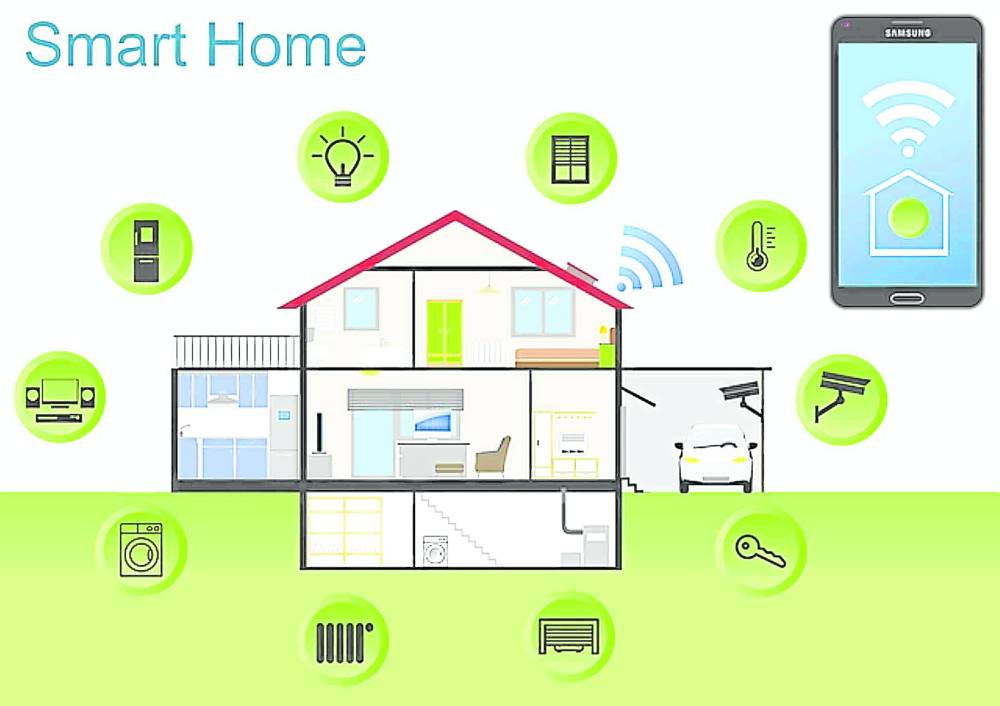How can we future-proof our homes?
As we face unprecedented global challenges, it’s more important than ever to consider how our homes can support our evolving needs while conserving resources and promoting environmental sustainability.
A genuinely modern dwelling must cater to these global necessities, providing its occupants with a sustainable and resilient lifestyle. Functionality, sustainability, and stability would be the ideal building blocks to meet these needs.

A house outfitted with solar photovoltaic panels can reduce dependency on the grid and fossil fuels. (VIVINT)
Powering the home: Generating, storing energy
A fundamental element of future-proofing homes is the implementation of autonomous energy systems. Renewable energy sources, primarily solar and wind, are leading the charge in this regard. For example, a house outfitted with solar photovoltaic panels can generate electricity, reducing dependency on the grid and fossil fuels.
Energy-efficient designs and technologies—like passive solar design, green insulation, LED lighting, and Energy Star-rated appliances—can further optimize energy consumption.
The water equation: Rainwater harvesting
Water conservation is another critical aspect of sustainable living.
One way to ensure a more efficient use of water is through a rainwater harvesting system, which can capture, filter, and store rainwater for other purposes such as irrigation, toilet flushing, and even drinking if with proper treatment. It’s a timeless method of water management that, with modern advancements, fits seamlessly into the fabric of future homes.
Article continues after this advertisementUrban farming: Nourishing homes
With urbanization escalating and available land dwindling, urban farming offers an innovative solution to food security concerns. Rooftop gardens, vertical farming, and hydroponic systems can transform idle spaces into productive food sources.
Article continues after this advertisement
Integrated home automation systems can monitor and control various parameters from energy consumption to indoor air quality. (HTTPS://CORP.SMARTBRIEF.COM)
Smart technology: The home’s nervous system
Integrated home automation systems can monitor and control various parameters, from energy consumption to indoor air quality, offering a new level of comfort and convenience. Machine learning algorithms enable predictive maintenance, which can spot potential problems before they become serious, thus lowering repair costs, and extending the lifespan of home components.
Building with regenerative materials
The selection of building materials significantly impacts a home’s sustainability and resilience. Regenerative materials, such as bamboo, cork, and certain types of timber, are renewable and carry lower environmental footprints than conventional materials.
Designing for resilience: Pandemic-proof spaces
The recent pandemic underscored the need for homes that can adapt to unexpected circumstances. Flexible layouts, which allow spaces to serve multiple functions, can accommodate sudden changes in living conditions, such as the need for a home office or a study space for children.
Merging work and home: A new era of entrepreneurship
Contemporary architecture has seen the rise of the “live-work” trend, where living spaces also serve as workspaces. This concept promotes entrepreneurship, improves work-life balance, and reduces commute times, ultimately contributing to lower carbon emissions.
Building the future today
As these strategies illustrate, future-proofing a home is more than just meeting the immediate needs of its inhabitants. It’s about anticipating the challenges ahead and using innovative architectural solutions to create homes that can stand the test of time, contribute to the planet’s health, and support the evolving lifestyle of future generations.
The author (www.ianfulgar.com) is one of the premium architects in the Philippines who assists local and international clients in enhancing hotels, condominiums, museums, and commercial and mixed-use township developments with distinctive and forward-thinking design specialties for the real estate industry

